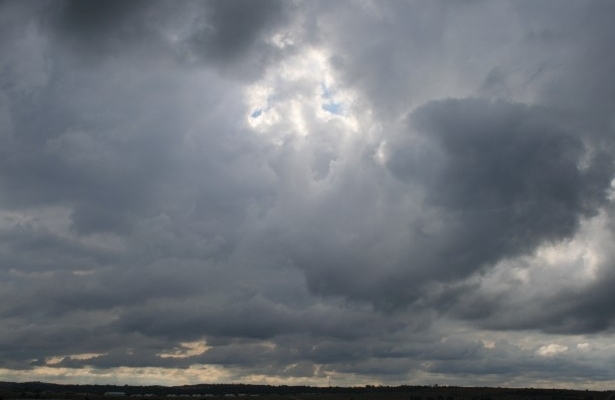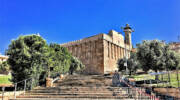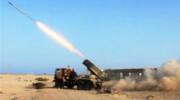As part of the holiday of Sukkot, we eat our meals in a sukkah (an outdoor booth, or hut), and many people even sleep in their sukkah!
By: Rabbi Ari Enkin
Rabbinic Director, United with Israel
One of the reasons we try to spend as much time as possible in the Sukkah is to recall the annanei hakavod – the “Clouds of Glory” – that accompanied and protected the Jewish people during their 40 years of wandering in the desert.
The question is asked: Why is it specifically the Clouds of Glory that are commemorated? There were other miracles and “services” that the Jewish people enjoyed in the desert, and we find no mitzva (commandment) to commemorate them.
For example, we all know about the Manna that fell from Heaven each day and sustained the Jewish people for 40 years. And there was also the “Well of Miriam” that provided water for the Jewish people in the parched desert. Why aren’t these other miracles and conveniences commemorated? Why is it only the “Clouds of Glory” that are so deserving of commemoration?
One of the answers offered is that there is no mitzvah or ritual to commemorate the Manna or the Well of Miriam because they were also the cause of sins, albeit unintentionally. For example, the Torah records how the Jews complained about the Manna and angered God.
So, too, they complained about what seemed to be a shortage of water, angering God yet again. As such, we don’t want to commemorate these miracles, even though we are so indebted to them, so as not to “remind” God of our sins.
This is similar to the reason that we only blow a ram’s horn on Rosh Hashana and not a cow’s horn – lest we remind God of the sin of the Golden Calf.
Another answer offered is that the manna and the well were vital necessities that God was obligated, so to speak, to provide for the Jewish people. Otherwise, they would have died in the desert.
Just as parents have an obligation to provide food and drink for their children, so does God have such a duty towards us…his children! There was no true obligation, or even necessity, for the Clouds of Glory – they were merely “extras” and “luxuries,” and for this reason they are especially worthy of commemoration.
Another question often asked is why Sukkot is observed in the Hebrew month of Tishrei (which falls in September or October, depending on the year). Would it not be more appropriate to observe the holiday of Sukkot, or at least the mitzva of sitting in a sukkah in April, Passover time, when we actually left Egypt and received the Clouds of Glory? It seems that we are “late” in our observance!
One answer offered is that sitting outside in a sukkah in April/May is quite a pleasant thing to do!.
In fact, many people go for outdoor meals during this time. As such, if we observed the mitzvah of Sukkah during this time, it wouldn’t be clear that we were doing so because the Torah had commanded us to do so. Onlookers would think that we were doing it for convenience or pleasure.
However, eating meals outdoors in September/October, when it starts to get cold, is quite odd and different. As such, it is clear that we are only doing so because the Torah commanded it, and for no other reason.

Do You Love Israel? Make a Donation - Show Your Support!
Donate to vital charities that help protect Israeli citizens and inspire millions around the world to support Israel too!
Now more than ever, Israel needs your help to fight and win the war -- including on the battlefield of public opinion.
Antisemitism, anti-Israel bias and boycotts are out of control. Israel's enemies are inciting terror and violence against innocent Israelis and Jews around the world. Help us fight back!























